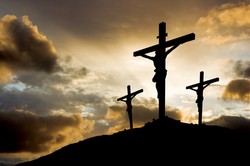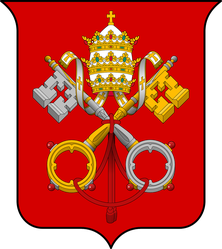The book goes beyond the synoptics to examine the presentation of Jesus in John's gospel. It is a testimony to his quality as a scholar that his lucid and penetrating mind reaches to the heart of the mystery of this gospel. An interesting aspect of this book is that it sets John in the theological context in which the apocryphal gospel of Thomas is set, and I see this as insightful. As Thomas is quite early, much earlier than most of the plethora of apocryphal, Gnostic gospels, Ward is reinforcing the modern insight that John is not the late, second century text that some scholars thought it was, but is earlier. However, I do think that Ward overlooks what is to me clear evidence of evolution in the johannine text, but this is not damning to the credibility of his argument.
The argument is that while the Synoptic Gospels try to give the verbal teaching of Christ, albeit in remembered form, John tries to give not the verbal teaching, which is clearly not presented in the gospel, scholars concur, but the inner meaning of Jesus and his teaching.In this way he undermines the significance of the quest for the teaching of the historical Jesus, that so dominated scholarly thought over many of the years in the nineteenth and twentieth centuries. That there is an underlying meaning of Jesus makes the quest unimportant. He also undermines those who see Jesus as merely a teacher of righteousness, for he is a spiritual reality that needs interpretation. Ward, as a philosopher, rightly undermines the liberal case made by many scholars by identifying that they have underlying and oft-not stated assumptions, and he rightly cites Tyrell's criticism of the liberal Harnack, that those who seek the historical Christ often end up with finding a Christ in their own image.
Ward believes that John and Thomas both represent attempts to ascertain the spiritual reality underlying Jesus, that he is the eternal Word of God incarnate, though Ward regards Thomas' attempt as theologically flawed through its Gnostic ideas, which Ward and I reject, rightly, I believe. Ward, though,sees Jesus as the eternal Word of God and so raises the idea that while the Word was incarnate in Jesus, it was not exclusively and only in him, and that as the Cosmic Christ it makes him present throughout the world, relating to all humankind. The book raises issues about the salvation of beings on other worlds, should there be any, but as yet cannot address these issues, as no one can.
This book is the work of a wise and good person, one who deeply believes in the gospel and lives it as a practising Christian minister. I have given you as taste of the wisdom contained therein, but by no means exhausted it. I commend it you.








 Pilgrimage. A review20 days ago
Pilgrimage. A review20 days ago
 Leo the Fourteenthon 05/09/2025
Leo the Fourteenthon 05/09/2025
 The Melsonby Hoardon 03/25/2025
The Melsonby Hoardon 03/25/2025




Comments
I have toyed with the idea of a successor, but it has never happened. Too much time has elapsed between the writing then and know.
Thank you for your comment below in answer to my previous observation and question.
Genius loci is a compelling, effective story that is not put down until the end, which invites more of the same and more of the different and the similar.
The real person in Genius Loci is Christ. This tale is about the temptations. But I did watch a television program on Egyptiann hermits and also read the book Deeper into
God. While the book did not have an account of the Devil, I used it and the story of Antony the Abbot as my inspiration.
Thank you for your comment in answer to my previous observation and question.
Your short story Genius loci draws upon a real person. I like not to fabricate about real people.
But a short story might manifest order differences by the Devil moving from remote hut to remote hut, each one with just a Benedictine or Carmelite or Carthusian or Cistercian or Dominican or Jesuit or Trappist inside.
(Were any orders omitted above?)
I don't think it is as simple as that. Theologicalmopinions are quite varied.
Thank you for your comment below in answer to my previous observation and question.
Does it seem that Cistercians might agree with Dominicans and that Benedictines might agree with Franciscans in the three-way tale of Dominicans, Franciscans and Jesuits about hell?
I cannot say, butbthe Cisterciansbarevquite strict.
Thank you for your comment below on Jan. 23, 2021, in answer to my previous observation and question.
Benedictine and Cistercian orders impress me with their gardens and their strucutures.
What might their members note about Hell in a five-way tale with Dominicans, Franciscans and Jesuits?
The Franciscan has a case in that no good God would invent Hell; but the Jesuit is correct to say that Hell [in the sense of rejection of God ] is a possibility.
I preferentially go with Franciscans but the Jesuits have done so much for knowledge in their information-gathering that I'll go with them. Which priest is your choice?